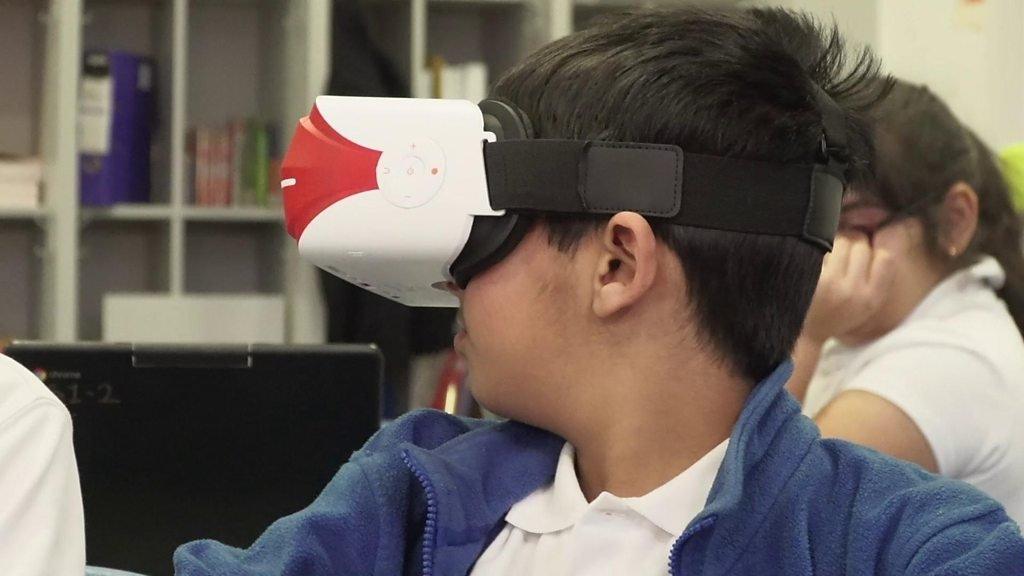Digital divide: The kids struggling without tech at home
- Published
- comments
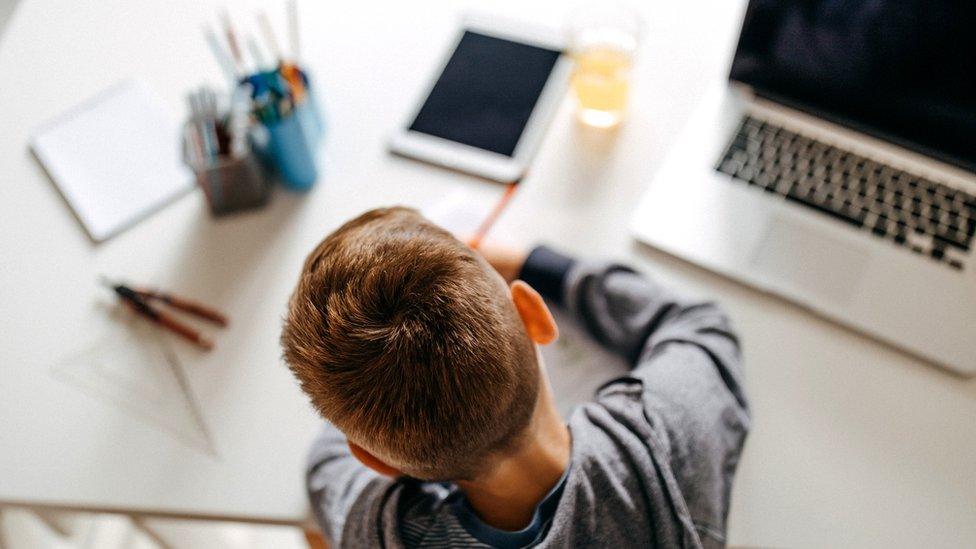
Some children in the UK don't have the technology they need to help them to study
Many children in the UK don't have access to technology at home. This is called the digital divide.
Around a million children and young people don't have proper access to devices or the internet at home, according to research carried out by Lloyds Bank.
It also showed that around 700,000 UK kids do not have the skills or devices, like phones, tablets or computers, that they need to do their homework.
This means that many children have been struggling to keep up with schoolwork from home during the coronavirus lockdown.
How are families being affected?
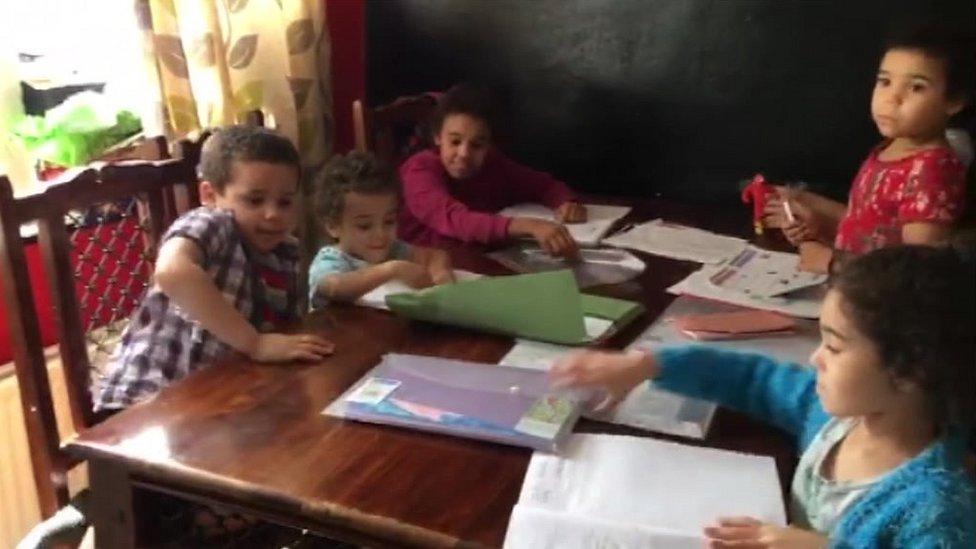
Six children were sharing one phone to help them do their school homework
Six children from a family in Swindon were recently all trying to share one phone to do all of their homework, during lockdown.
Their mum had to split the phone between them all using one hour time slots.
One of the children said it was stressful, and was worried she was "falling behind" her classmates.
In a different house, 14-year-old Charlie, has been doing all of his studying for his GCSE exams, which will happen next year, using a phone.
He said: "I'm finding it very, very stressful and to be honest sometimes I find it all too much and I don't do any work at all,"
What is being done to help?
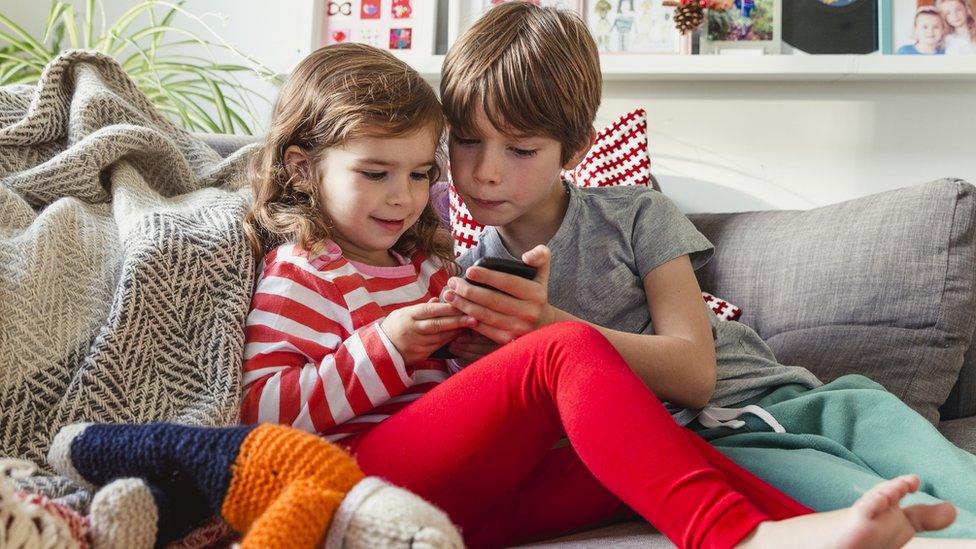
The BBC has launched a campaign, called the 'Make a Difference campaign' which helps to raise awareness of those struggling without digital devices, and points people towards charities and organisations in the UK which donate unwanted tech and devices to help those in need.
As a result of them sharing their story, a BBC viewer donated a tablet to the family in Swindon, to help them with their schoolwork.
A spokesperson from the Department for Education said that "no child should fall behind as a result of coronavirus".
The government also said that it was donating more than £100m to support children to learn at home, including delivery of over 200,000 laptops and tablets, as well as teaming up with an internet company to help provide free and better access to the internet for some families.
Many charities and companies have set up schemes where people can donate their old laptops, tablets and phones, which they repair, then give to schools to help pupils struggling at home.
For more information and advice about the digital divide, you can head to the BBC Own It page.
- Published12 April 2020
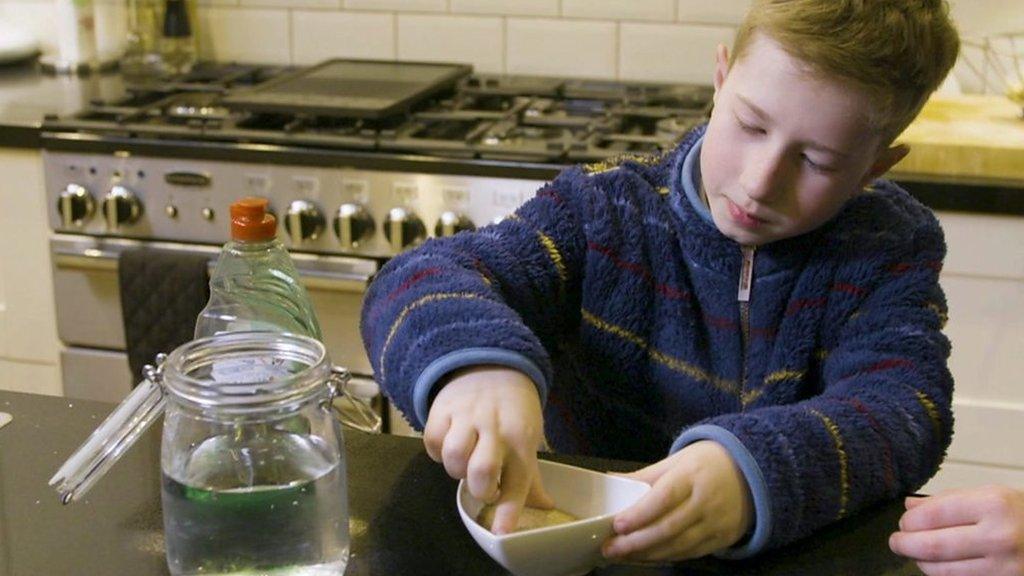
- Published19 May 2020
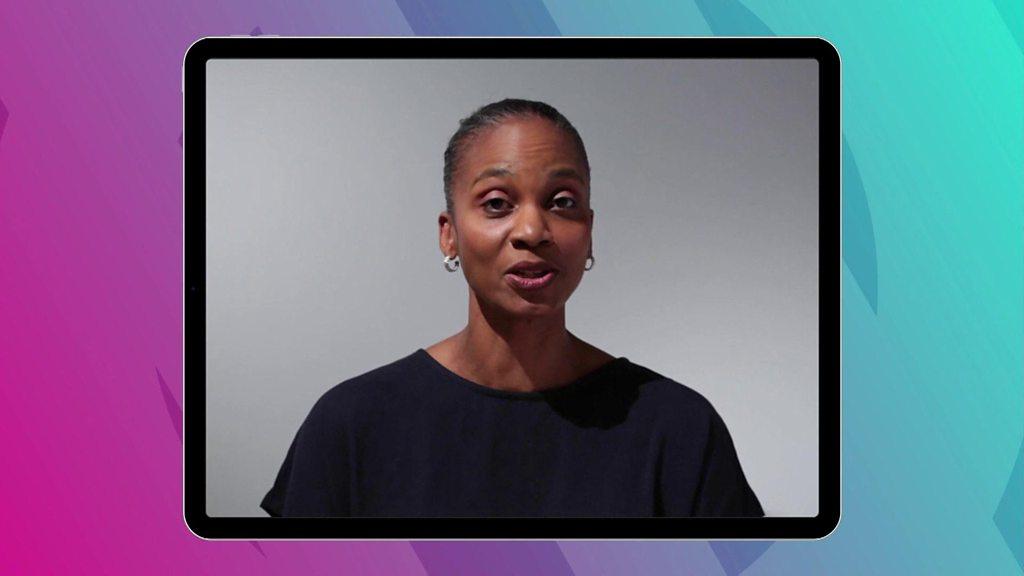
- Published20 January 2020
